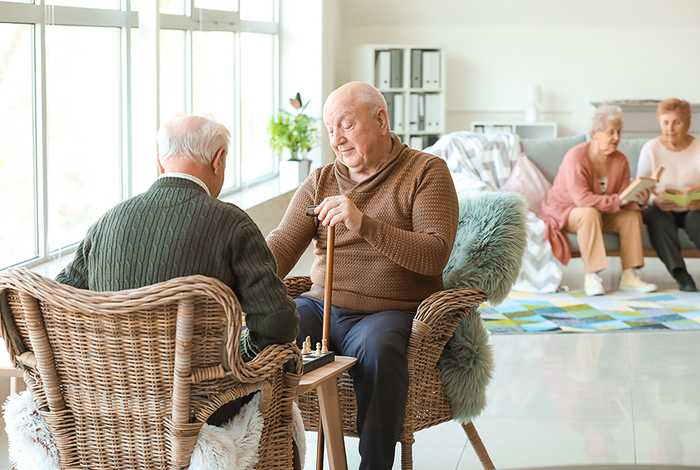Posted by Rob King
A case of Alzheimer's and a search for elderly care
Who cares and when?
From hospital to… nowhere fast. The clock keeps ticking. People keep waiting.
Nigel Penny is 72, enjoys good food, playing cricket, watching discovery programmes and disappearing under the bonnet of his vintage MG.
But Nigel has Alzheimer’s Disease… and it’s advancing rapidly to the immense distress of his wife Angela, who has been caring for him, but can’t manage any longer.
12 weeks ago, Nigel, who is relatively fit, though unstable on his feet, became aggressive, throwing things at Angela in frustration – a newspaper to start with and then heavier objects.
As a result, he had to be sectioned under the Mental Health Act and admitted to an acute hospital.
Nine weeks later – eight weeks too long – he was still there, in an environment ill-suited to his needs. A Deprivation of Liberty Safeguard (DoLS) had replaced the Section, to ensure that he could not be allowed to discharge himself, return home and put himself and others at risk. But he was a danger in hospital too, to himself and other patients, many of whom were acutely ill and immobile. Nigel’s tendency to wander into rooms, bump into people, shout and argue, could be frightening and potentially dangerous.
Nigel should have been discharged into a residential home specialising in dementia care two months earlier, avoiding immense, prolonged distress to himself and those close to him – not to mention the physical decline that time in hospital will have exacerbated. He should have been enjoying his life again, safe, secure and comfortable, with Angela feeling confident that her husband was in the right place.
He had been awarded needs-based 117 funding – in order to secure the care he needed to support his mental health, but Angela had not been informed, despite repeated requests, of the sum payable. The sticking point was apparently over whether 24-hour 121 care would be funded (ie: through the night).
The discharge team were seemingly unable to find a suitable place, but Angela was uncertain whether that was because the fees charged consistently exceed the allowance; nor had she been told which care homes had been considered. Legally, Angela and her family are entitled to ‘top up’ the 117 funding – and they had confirmed they wanted to do so. However, without knowing the total sum payable for Nigel’s care, Angela could not identify suitable care homes and secure a place for her husband. Her hands were tied.
Eventually, funding was confirmed, but it was less than hoped for which reduced Angela's selection of suitable care homes from five down to three. However, Nigel is now safely and happily settled in a lovely home, albeit 10 miles away from where he lived with Angela - which means a longer journey for her on a daily basis. Overall though - success!
Whilst it was ongoing, this unsatisfactory situation caused so many people worry and distress:
- Nigel – who did not know what was happening and felt undignified and confused
- Angela – who felt she had no control or influence, despite making a significant contribution to the costs, and was struggling to cope
- The hospital staff, who were having to accommodate and care for someone who was a potential danger to himself and others
- Hospital patients who were acutely ill
- The NHS who urgently needed Nigel’s bed for a never-ending queue of patients
The greatest frustration was that there were several suitable options for Nigel – which would have provided the care he needs and given Angela the peace of mind she deserves. But because ‘the dots are not joined up’ and communication is poor, everyone had to live with protracted delays for too long. Transparency and shared knowledge are vital... and when everyone is trying so hard, surely it should be easier to arrive at the best solution?
Where can I find support for someone with Alzheimer's?
For information and guidance on finding care support for someone with Alzheimer's Disease, call the Autumna Advice Line on 01892 33 53 30. We're open 7 days a week.
Other articles to read
Autumna Blog

Older Persons Care Advice
Annuities for care home fees: Everything you need to know
October 23rd, 2025
Learn how annuities for care home fees provide guaranteed income, financial stability, and peace of mind when planning for long-term care costs.

Older Persons Care Advice
Care options for the elderly: What is right for you?
October 17th, 2025
Discover care options for the elderly that fit your needs, from home support to residential care, helping you plan confidently for the years ahead.

Older Persons Care Advice
Are next of kin responsible for care home fees
October 17th, 2025
Find out the truth about care costs. Are next of kin responsible for paying care home fees? Learn who pays, exceptions, and how to plan ahead.






